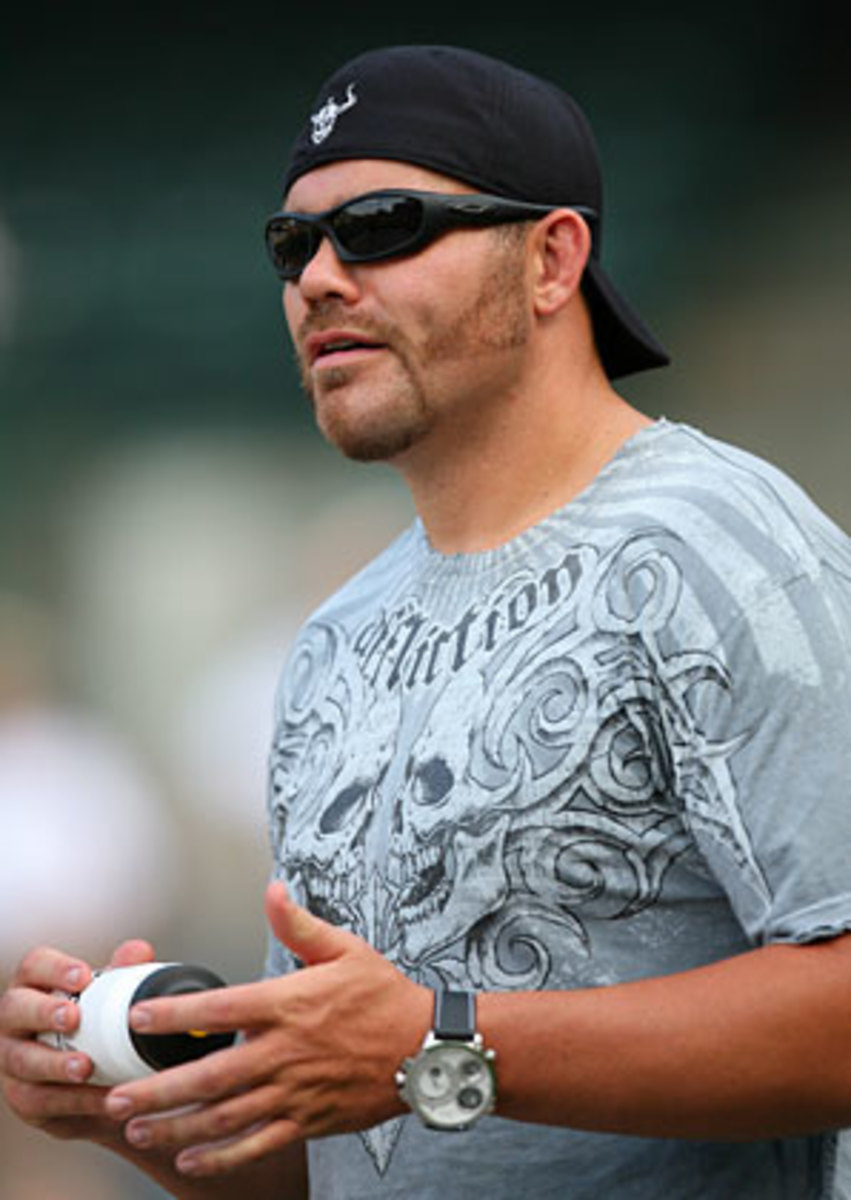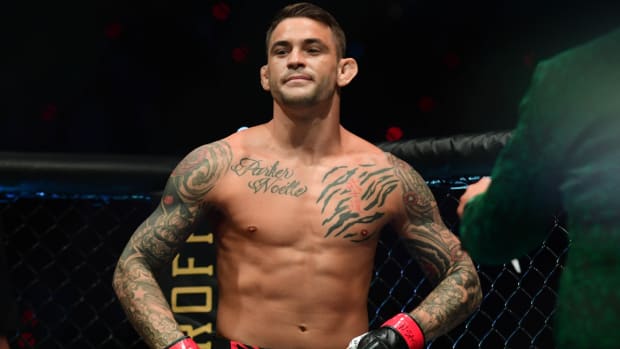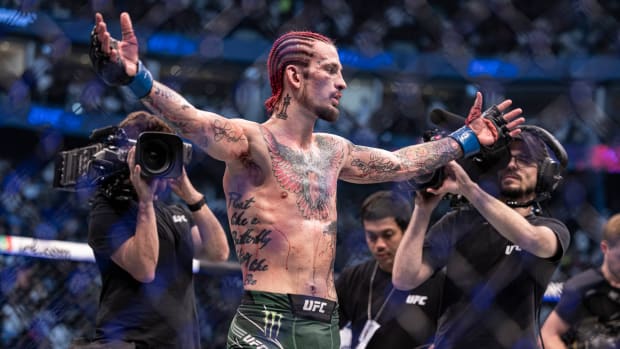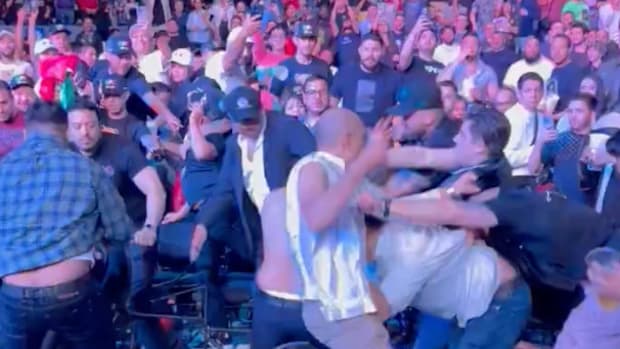ProElite readies for second life
The new ProElite, which held its first event in nearly three years on Aug. 27 in Hawaii and plans to follow it up with another show on Nov. 5 in Moline, Ill., said it will be decidedly more responsible than its original model.
On June 15, Stratus Media Group, a Santa Barbara-based operator of live entertainment and sporting events, completed its purchase of a 95 percent stake in ProElite for $2 million. It was a deal two years in the making and one aimed at resurrecting a once promising promotion that had broadcast deals with CBS and Showtime.
When Stratus CEO Paul Feller entered the picture in early 2009, ProElite had become a cautionary tale of excess and spotty decision-making to the tune of $55 million. A top-heavy organization weighed down by both overbearing and absentee executives, ProElite had risen to No. 2 footing despite its roller-coaster first-run until the funds ran dry and it all came crashing down in October 2008.
Just months before, ProElite had been teeming with 80 employees spread across its fight operations, public relations, and marketing teams, along with a social media website that never took off with fans. It had now been stripped down to a handful of officer-level employees, who had to fight off creditors while trying to keep up with the SEC's public company requirements.
"We kept a few people on board to wind down operations and consolidate the position we were in and see what we could sell or maintain to keep the lights on with a view to finding another investor," said current ProElite President and COO William Kelly, who was originally included in the company's mass exodus and re-hired shortly after.
At the top of list, ProElite owed $6.3 million to the CBS Corporation and its sister cable network Showtime, which had invested in the company for 20 percent ownership. And with the Strikeforce promotion waiting in the wings to take ProElite's place on the cable and network TV platforms, the ailing promotion's hand was forced into selling what it could to pay back its broadcast partners.
In February 2009, ProElite sold its more coveted fighter contracts, as well as licensing rights to both EliteXC's name and footage library to Strikeforce for $3 million. The limited assets sale was coupled with the termination of ProElite's broadcast deals with both Showtime and CBS, and included a provision that ProElite would receive a licensing fee from Strikeforce for the length of its deal with Showtime, payable until Feb. 28, 2012. As part of the deal, CBS and Showtime agreed to retire ProElite's outstanding debt.
What properties and assets did ProElite retain?
The company still had full ownership of three of the four additional promotions it had purchased when it launched in 2006, including the UK's Cage Rage, Hawaii's Icon Sport and South Korea's MC.
King of the Cage founder Terry Trebilcock purchased his promotion back for $200,000 in July 2009. Trebilcock said half of that fee paid for the release of TV producer Mark Burnett from his contractual commitments to ProElite, so Trebilcock could renegotiate a deal between KOTC and Burnett for the TV show Bully Beatdown.
Feller said ProElite still retains rights to both the EliteXC name and video library, but decided to move forward with the parent company's moniker (all of the brands will be consolidated under the ProElite name moving forward) because he believed it had greater brand equity worldwide. Feller said he never contemplated taking Stratus' investment and starting a company from scratch.
"We had a public company that was virtually clean," Feller said, "which fit into our strategy at a better cost-point. We might have to put another $45 to 50 million in to build it up, but at least we aren't starting from scratch."
While Feller and Kelly re-strategized ProElite's business plan over the next year, a sizable opportunity came in late 2010, when Silicon Valley Sports and Entertainment quietly put its 50 percent ownership stake of Strikeforce on the market to the highest bidder. Feller said he tendered an offer in an attempt to "bring the family back together."
"Negotiations went up close to the $20 million mark for us to acquire majority interest," said Feller. "That day, the UFC came over the top of us and doubled our offer."
In recent months, former employees T. Jay Thompson, a promoter since 1996 who sold Icon Sport to the company in 2006, and Rich Chou, who served as a Strikeforce matchmaker until the UFC acquired its biggest rival last March, have returned to ProElite. Thompson was well aware of the reputation ProElite had gained in the fight community in its final months, especially among fighters whose careers stagnated before the company agreed to the asset sale with Strikeforce.
"Rich and I were ready to catch a lot crap for being a part of ProElite (again)," said Thompson. "We got none because, in this current landscape, people are suddenly rooting for us. We're the underdog."
Fighters' options outside of the UFC have become sparser since Zuffa LLC, the parent company of the UFC, took Strikeforce out of the running.
"Within the industry, Rich and I have gotten so much support from fighters and management and we all know why," said Thompson. "People want that No. 2 out there. They want that place to call home."
Monte Cox, who's managed former UFC champions Matt Hughes, Jens Pulver and Tim Sylvia and run multiple promotions in the Midwest since the mid-'90s, has been brought on as a consultant for the Nov. 5 show and beyond. Cox's influence, from venue choice to main event, is easily evident: Sylvia will headline the event against fellow octagon veteran Pedro Rizzo.
The company's new structure relies heavily on the resources of its parent entity, Stratus Media Group. Stratus provides legal, accounting, sales and marketing support to ProElite along with its other diverse properties, which include the Maui Jazz Festival, a tour of national auto shows, wine festivals and the Perugia Film Festival.
In total, Feller said Stratus owns 140 companies and/or live events, but ProElite filled the young male demographic missing from its profile. Some of those properties, like the Core Tour, an X Games type event, will offer cross-marketing opportunities and advertising leverage, said Feller. According to Feller, Stratus' infrastructure has both the capacity and expertise to handle nearly all of ProElite's needs - from ticket sales to worldwide broadcast rights.
"Our goal is realign this division within Stratus Media Group as the strong contender to a No. 2, No. 3 player and eventually take the place that Strikeforce just relieved," said Feller.
To do that, ProElite will have to produce compelling fights - not an easy task as the UFC has a good share of the sport's upper echelon of talent currently under contract.
Thompson isn't worried.
"There's always fighters becoming available, whether it's the Nate Marquardts or the Andrei Arlovskis," said Thompson. "I have a history of re-invigorating careers - the Robbie Lawlers, the Frank Triggs. But I've also created the Mayhem Millers, the B.J. Penns."
ProElite's plans to build an appealing roster aren't much different than other promotions that have entered the space: to optimize the stars they can acquire and develop young talent without breaking the bank.
The November event will introduce an eight-man heavyweight tournament of "unknown" fighters anchored by 2009 NCAA Division I wrestling champion and American Kickboxing prospect Mark Ellis (1-0). Thompson also has high hopes for Reagan Penn (1-0), younger brother to UFC star B.J. and an accomplished Brazilian jiu-jitsu black belt in his own right, and 2004 Olympic wrestling silver medalist Sara McMann (4-0).
Thompson promises "a matchmaking style that isn't by the numbers."
"What Strikeforce did so well was that they were fun. It was kind of hip," said Thompson. "Think of the UFC as your father's MMA. We'd like to be a little cooler, a little hipper, a little more fun -- maybe take ourselves a little less seriously."
Feller said ProElite has initial plans to promote six to eight shows in 2012, and though he emphasized that the company wants to take its development slowly, he also mentioned the possibility of pay-per-view events as early as next year.
To get to that stage, ProElite will need the exposure that only a television deal can bring. Feller said ProElite is currently in vigorous negotiations with three networks on both the broadcast and cable network platforms, but wouldn't identify them. A source with knowledge of one potential deal said ProElite is in talks with Mark Cuban's HDNet, which is eying the Nov. 5 event for broadcast.
Although Showtime still maintains minor ownership (ProElite said Showtime's 20 percent stake will be diluted accordingly when Stratus converts its stock from preferred to common shares), multiple sources have said there are no immediate plans between the two organizations to work together at this time.
In terms of making a TV deal happen, ProElite's negotiations sound more fiscally promising this time around.
"The first year on Showtime we had to essentially pay for production," said executive vice president Eric Ficksman, another employee who has stayed with the company throughout its five-year duration.
Feller said it was a good assumption that ProElite won't have to bear these costs in its new deal, even though other promotions are willing to pay for the opportunity.
As for the UFC, Feller said Stratus will be mindful of the industry leader's ever expanding schedule, but unlike its predecessor, ProElite 2.0 has no intentions to bite off more than it can chew.
"Do we take into account not to go on this date or into this specific region because that UFC might be there? Absolutely. We'd be crazy not to," said Feller. "But we don't have strategy sessions about how were going to fight the UFC. We're not here to compete with the UFC."





